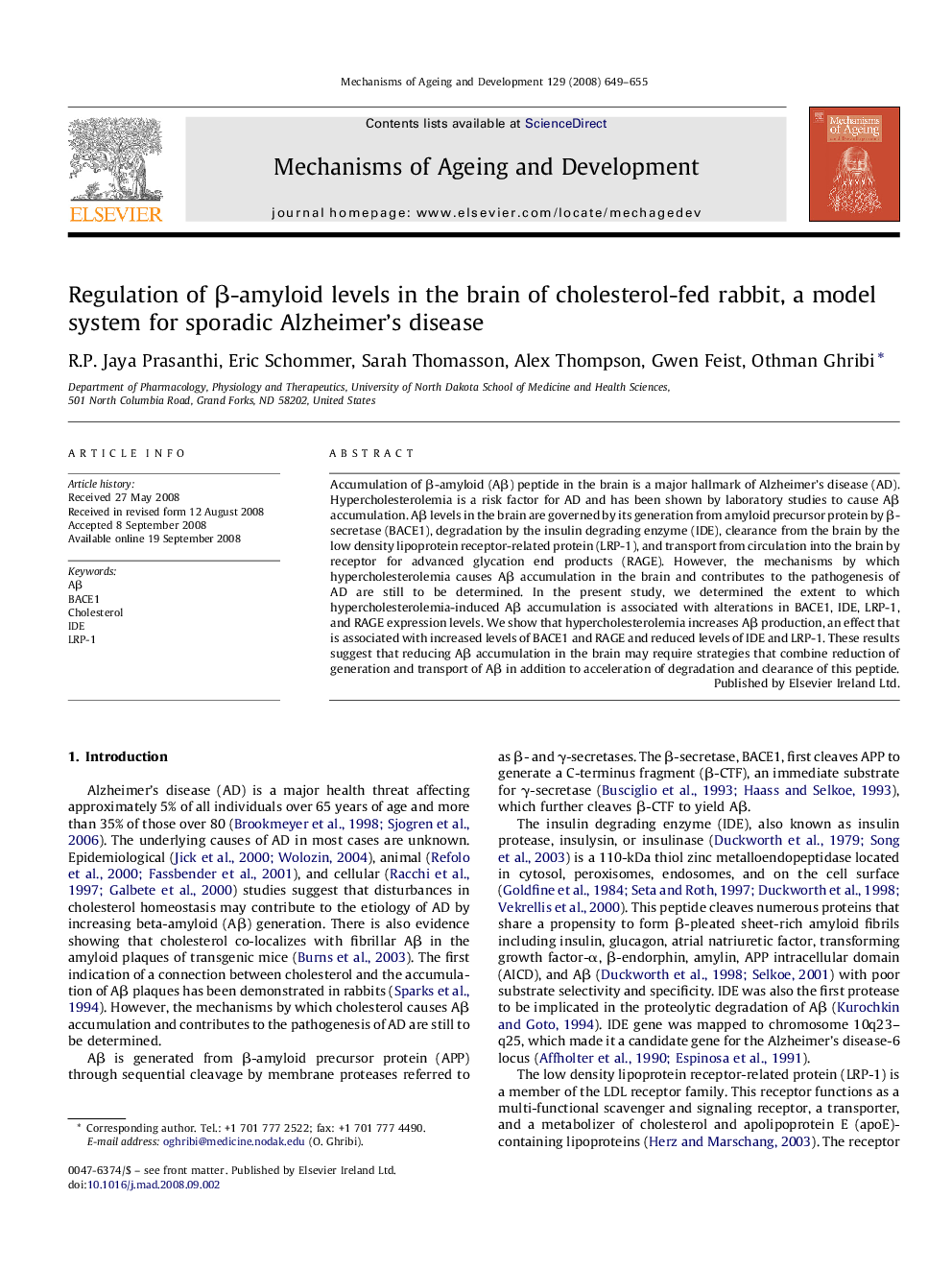| Article ID | Journal | Published Year | Pages | File Type |
|---|---|---|---|---|
| 1919847 | Mechanisms of Ageing and Development | 2008 | 7 Pages |
Accumulation of β-amyloid (Aβ) peptide in the brain is a major hallmark of Alzheimer’s disease (AD). Hypercholesterolemia is a risk factor for AD and has been shown by laboratory studies to cause Aβ accumulation. Aβ levels in the brain are governed by its generation from amyloid precursor protein by β-secretase (BACE1), degradation by the insulin degrading enzyme (IDE), clearance from the brain by the low density lipoprotein receptor-related protein (LRP-1), and transport from circulation into the brain by receptor for advanced glycation end products (RAGE). However, the mechanisms by which hypercholesterolemia causes Aβ accumulation in the brain and contributes to the pathogenesis of AD are still to be determined. In the present study, we determined the extent to which hypercholesterolemia-induced Aβ accumulation is associated with alterations in BACE1, IDE, LRP-1, and RAGE expression levels. We show that hypercholesterolemia increases Aβ production, an effect that is associated with increased levels of BACE1 and RAGE and reduced levels of IDE and LRP-1. These results suggest that reducing Aβ accumulation in the brain may require strategies that combine reduction of generation and transport of Aβ in addition to acceleration of degradation and clearance of this peptide.
